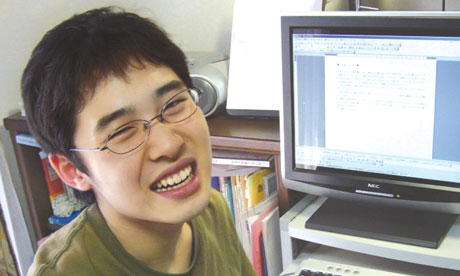
A European minister's comments in 2009 about the "autistic" nature of British foreign policy were not merely politically naive (or perhaps merely dishonest), they reflected a common misconception. The autistic person, in this view, is someone so self-involved that he (it's usually a he) is blind to the needs and feelings of others. Equally prevalent is the idea of autistics as a species of uber-nerd, the control-freakery of the stereotypical male mind developed to a morbid degree.
Such a view will not survive a reading of this slight, modest yet highly provocative book, in which it is made clear that all these tendencies – as the novelist David Mitchell notes in his introduction – are "not symptoms of autism but consequences of autism".
What's the difference? Those diagnosed with autism, Mitchell is saying, have an excess of the very qualities they are thought to lack. They are not insensitive but hypersensitive, and the classic autistic traits (lining things up, for example) are ways of keeping a relentless perceptual onslaught at bay.
What sets this book apart from the reams of professional theorising on autism is the fact that it is written by an autistic, and a child to boot. Its short, question-headed chapters aim to disclose the 13-year-old author's "inner self", to make people "understand what we really are, and what we're going through".
For example, the section titled Why Do You Like Being in the Water? explains that "we are a different kind of human, born with primeval senses". He states that "when we look at nature, we receive a sort of permission to be alive in this world, and our entire bodies get recharged".
Might the autism epidemic, I began to wonder, be a kind of alarm, given off at a time when our species-wide disconnection from the planet has become pathological? And then, towards the end of the book, Higashida voices exactly that thought: "I think that people with autism are born outside the regime of civilisation… [in which] a deep sense of crisis exists… Autism has somehow arisen out of this… if, by our being here, we could help the people of the world remember what truly matters for the Earth, that would give us a quiet pleasure."

